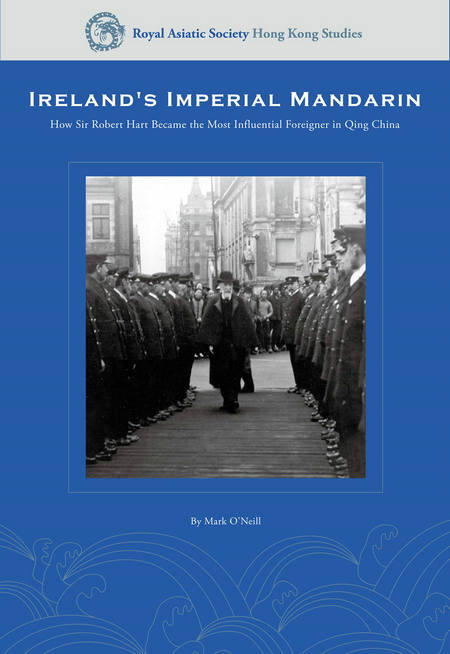Book highlights role played by British official
 0 Comment(s)
0 Comment(s) Print
Print E-mail China Daily, March 24, 2017
E-mail China Daily, March 24, 2017
By the time Sir Robert Hart left Beijing in 1908, he had been a top officer in China's customs for most of his adult life. Now, Ireland's Imperial Mandarin, a biography of Hart, looks at his life.
|
Ireland's Imperial Mandarin, a new biography of Robert Hart. [Photo provided to China Daily] |
His biographer Mark O'Neill was at the launch of the book in Beijing on March 15. It was published in January.
Based in Hong Kong, O'Neill is the author of eight books about China.
Beijing was the fourth stop on his book tour after Taipei, Hong Kong and Macao, and he says it was the most important one.
"This is because he (Hart) lived here for 45 years. He lived very close to where I am standing now," says O'Neill at Beijing's Bookworm, a bookstore in the Sanlitun area known for its large collections of English language books about China.
"Just cross Chang'anjie (Chang'an Avenue) from Beijing Hotel, walk about 30 meters and turn left-that's the street where Hart lived," says O'Neill to a room full of listeners, both Chinese and expats.
"There is a plaque which says in Chinese that Hart lived here, adds O'Neill.
"This plaque survived the Japanese occupation, the Chinese civil war, the 'cultural revolution' (1966-76) and everything. It's still there."
"In the history of China, there has never been a foreigner like Sir Robert Hart. Nor will there ever be in the future," he adds.
Hart was born in a Christian family in Portadown, a small town in what is now Northern Ireland, in 1835, and went to Queen's University in Belfast at the age of 15.
The library of the university, which now has the diaries and correspondence by Hart, was one of the main sources for O'Neill's book.
Three years after graduating, Hart was selected by British foreign secretary to work in China, and then began the most marvelous journey of his life.
In 1854, Hart was sent to Ningbo, Zhejiang province, where he hired a Chinese teacher and studied the Confucian classics, including Analects, Mencius and The Book of Songs (Shi Jing).
"Nothing but hard , hard study will conquer the Chinese language, literature and its difficulties; but I am determined to become its master," Hart writes in his journal.
He was appointed inspector-general for the Imperial Maritime Custom Service of the Qing government in 1863.
In his journal Hart writes: "My life has been singularly successful: not yet twenty-nine, and at the head of a service which collects three millions of revenue, in-of all countries in the world!-the exclusive land of China ..."
Hart knew that such a lofty position could be easily abused for taking bribes, so he made a set of rules to keep himself and the organization away from corruption.
"I must set a good example, in conduct, to all my subordinates," Harts writes.
He hired a professional accountant from the treasury in London to draft rules to prevent embezzlement.







Go to Forum >>0 Comment(s)